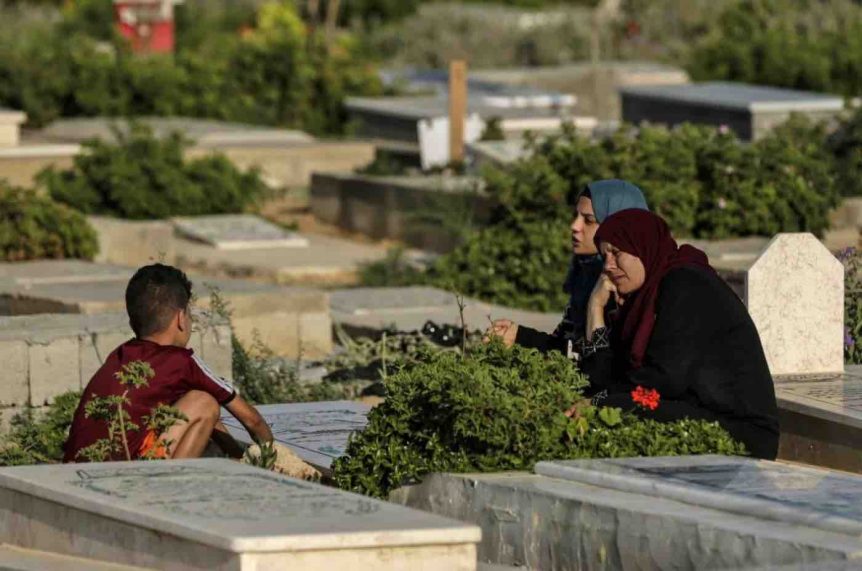Israel’s decades-long illegal practice of withholding the mortal remains of indigenous Palestinians was the subject of a joint submission filed on 22 June 2020 by three Palestinian and regional human rights organisations to the United Nations (UN) Expert Mechanism on the Rights of Indigenous Peoples (EMRIP), as well as relevant UN Special Procedures mandates. Sent on behalf of the Jerusalem Legal Aid and Human Rights Center (JLAC), Al-Haq, Law in the Service of Man, and the Cairo Institute for Human Rights Studies (CIHRS), the submission was prepared in response to the Expert Mechanism’s call for input on its upcoming report on the repatriation of ceremonial objects and human remains under the UN Declaration on the Rights of Indigenous Peoples. The final version of the report will be presented to the UN Human Rights Council at its 45th regular session in September 2020.
The organizations called on EMRIP to address Israel’s illegal policy in their upcoming report and urged the mechanism to recommend the immediate repatriation of the bodies of deceased Palestinians withheld by Israel, put an end to this policy, and lift all restrictions on Palestinian funerals and mourning rituals, which violate their fundamental rights under international law. The submission builds on JLAC’s 12-year representation of Palestinian families whose loved ones’ bodies continue to be withheld, are missing, or have been forcibly disappeared by the Israeli occupying authorities before the Israeli High Court. It also complements the international advocacy work carried out by JLAC, Al-Haq, and CIHRS in drawing attention to unlawful collective punishment measures carried out by the Israeli occupying authorities against the Palestinian people and demanding international justice and accountability for Israeli war crimes and crimes against humanity. Such efforts are particularly urgent in light of the Israeli judiciary’s endorsement of the policy of withholding Palestinians’ bodies, stressing the importance of activating international accountability mechanisms.
Divided into two sections, the first section of the submission offers a historical background of Israel’s policy of withholding corpses over the past five decades of Israeli military occupation. It traces the practice’s trajectory from inconsistent application to a temporary halt, then to its re-escalation, culminating in the current efforts to regulate and systematize it through Israeli legislation and court rulings. The second section of the submission discusses the legal framework that institutionalizes the practice of withholding Palestinian corpses and the ways in which the Israeli judiciary has handled Palestinian petitions against this policy.
Israeli practices of withholding the bodies of indigenous Palestinians, either in the cemeteries of number or in military morgues, and the imposition of restrictions and conditions on funerals and mourning rites, violate Article 12(2) of the UN Declaration on the Rights of Indigenous Peoples. These practices also contravene customary international humanitarian law rules on the disposal of the war dead’s bodies, in addition to the human rights to dignity, family life, religious freedom, and cultural customs, and the prohibition against cruel, inhuman or degrading treatment or punishment. Furthermore, withholding mortal remains and imposing strict conditions on funerals amount to unlawful collective punishment, which is prohibited under Article 50 of the Hague Regulations (1907) and Article 33 of the Fourth Geneva Convention (1949). Under certain cirumstances, the Israeli practice of withholding bodies without notifying the families of their whereabouts may further meet the defintion of the crime of enforced disappearance as laid out in the International Convention for the Protection of All Persons from Enforced Disappearance (ICPPED).
Since 2015, the Israeli occupying authorities have withheld the bodies of more than 250 Palestinians killed or extrajudicially executed by the Israeli occupying forces. As of the end of May 2020, 62 of these bodies remain in Israeli custody under the pretext of being used as ‘bargaining chips’ in potential prisoner swaps. In addition, 253 bodies continue to languish in the so-called “cemetries for enemy combatants,” in some cases for decades.
The full version of the submission to EMRIP and to other relevant UN Special Procedures can be found here.
Share this Post

